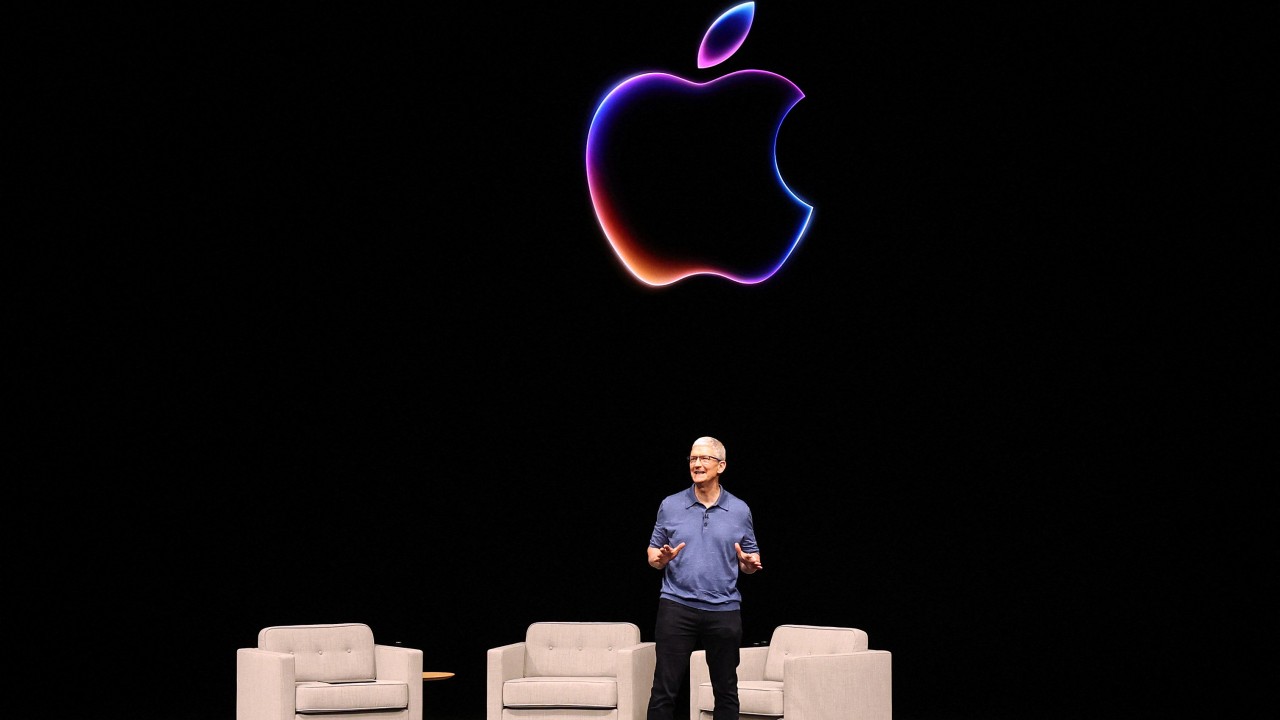
Apple’s introduction of generative artificial intelligence (AI) capabilities on iPhones and its other devices is unlikely to boost the company’s sales in China because of abundant local competition and potentially limited service availability, according to analysts.
The world’s second-largest smartphone vendor on Monday unveiled its AI blueprint during its annual Worldwide Developers Conference, detailing long-awaited new functions coming to its devices, including intelligent text generation and photo editing.
But amid uncertainties over which AI services Apple will be able to bring to mainland China’s heavily regulated market, analysts and industry insiders said the new functionalities may do little to lift battered iPhone sales in the country.
“China’s going to be tough for Apple … it’s unlikely that OpenAI will be willing to create a censored version for China,” said Rich Bishop, co-founder and chief executive at software publisher AppInChina, referring to the US start-up behind ChatGPT that provides some of the technologies supporting Apple’s latest AI endeavours.
As of March, the Chinese government approved more than 117 generative AI services from Chinese Big Tech companies and start-ups. Similar offerings from OpenAI and other US companies, including Google and Amazon-backed Anthropic, remain officially inaccessible in the country.
Baidu and Apple did not immediately respond to a request for comment on Tuesday.
Apple is integrating generative AI in its products later than its Android rivals, which means it is taking “just the first step in meeting the expectations of ‘having what others have’”, said Ivan Lam, analyst at consultancy Counterpoint Research.
In the short term, the freshly announced features will not have a significant impact on iPhone sales in mainland China, partly because it remains to be seen whether these functions will be available there, according to Lam.
Apple’s AI announcement contained few novelties and felt more like an attempt to catch up with competitors, according to research firm IDC.
Samsung, the world’s bestselling smartphone brand, has already benefited from its early adoption of AI technology in S24 and earlier flagship handsets, which helped raise sales and positioned the company well in the global race against Apple, said Canalys analyst Toby Zhu.
Contrary to its global popularity, Samsung holds less than 1 per cent of the smartphone market in China. Still, Apple’s AI functions come as sales across the Chinese handset industry have hit a growth bottleneck, said Zhu. It will also take time for Apple to meet the regulatory requirements needed to launch its AI functions in the country, he added.

